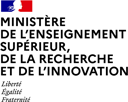MEDICINAL AND AROMATIC PLANTS : DOMESTICATION, BREEDING, CULTIVATION AND NEW PERSPECTIVES



Bernadette Julier, France ; Frank Marthe, Germany ; Ute Vogler, Germany ; Ulrike Lohwasser, Germany ; Stefan Martens, Italy ; Alban Ibraliu, Albania ; Johannes Novak, Austria ; Dimitros Argyropoulos, Ireland ; Ana Barata, Portugal ; Lydia Smith, United Kingdom ; Creola Brezeanu, Romania ; Pietro Fusani, Italy ; Eirini Sarrou, Greece ; Mette Goul Thomsen, Norway ; Silvana Nicola, Italy ; Juliana Navarro Rocha, Spain ; Katerina Grigoriadou, Greece ; Carlos Cavaleiro, Portugal ; Karen Swanepoel, South Africa ; R.A. Gokare, India ; Hermine Vogel, Chile ; Ilio Montanari Jr, Brazil ; Javad Hadian, Iran ; Lei Shi, China ; Valtcho Jeliazkov, USA
The Medicinal and Aromatic Plants (MAP) sector is very large and complex with thousands of species, both collected and cultivated, to supply various industries such as the agroindustry, pharmacy, beauty and care industries and plant protection industries. From fresh plant material (whole or selected parts) to dried plant material (whole or selected parts) and from essential oils to plant extract, even if the dedicated production areas are quite small, the MAP supply chain is very wide and has a great impact on consumers.
The interest in MAP is growing worldwide. However, the adaptation of medicinal and aromatic plants to global challenges needs to be addressed. The competitiveness and sustainability of the value chains working with cultivated or wild managed plants used for medicinal and cosmetic products is often under pressure. Research and development of MAP through domestication, breeding and innovations in cultivation are key factors for competitiveness adaptation to environmental changes–especially climate change. New perspectives of MAP regarding compounds of natural origin for a sustainable agriculture create also valuable opportunities.
The following topics will be developed during the symposium :
• Development of MAP crops through genetic resources, domestication and breeding
• Adaptation of MAP cultivation to global changes
• Plant raw materials for herbal medicinal products, botanical food supplements and frontier products: requirements for quality and safety
• Postharvest handling and drying of MAPs
• New uses of MAP plants and extracts in agriculture and horticulture (biocides, biostimulants, antibiotic substitutes, …..)
If you need help for your abstract please contact :
christoph.carlen@agroscope.admin.ch
HOW TO PREPARE ABSTRACTS AND PAPERS SUBMIT YOUR ABSTRACTS







